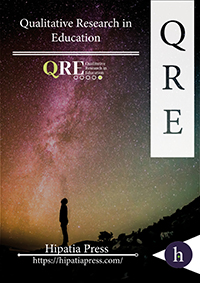Self-Advocates with Intellectual Disability about Their Work as Social Educators – a Qualitative Polish Study
Keywords:
Downloads
Abstract
The paper presents the opinions of self-advocates with mild intellectual disability about their work as social educators – public self-advocates raising disability awareness. Six semi-structured individual interviews were conducted. Data was analyzed within the framework of Interpretative Phenomenological Analysis. The themes which emerged from the interviews comprise: the motives of educators to work as self-advocates, opportunities to gain new skills and to raise public awareness about disability given by this activity, the difficulties they experience being social educators and ways to overcome them, the meaning of self-advocacy in their lives as well as the readiness to recommend this work to other people with disability. The gathered data suggests that, according to the self-advocates, being a social educator enhances the social status of self-advocates. It also provides an opportunity to develop skills, new social roles and sometimes positive identities, which is in line with the assumptions of the theoretical models of self-advocacy.
Downloads
Downloads
Published
Almetric
Dimensions
How to Cite
Issue
Section
License
All articles are published under Creative Commons copyright (CC BY). Authors hold the copyright and retain publishing rights without restrictions, but authors allow anyone to download, reuse, reprint, modify, distribute, and/or copy articles as the original source is cited.















